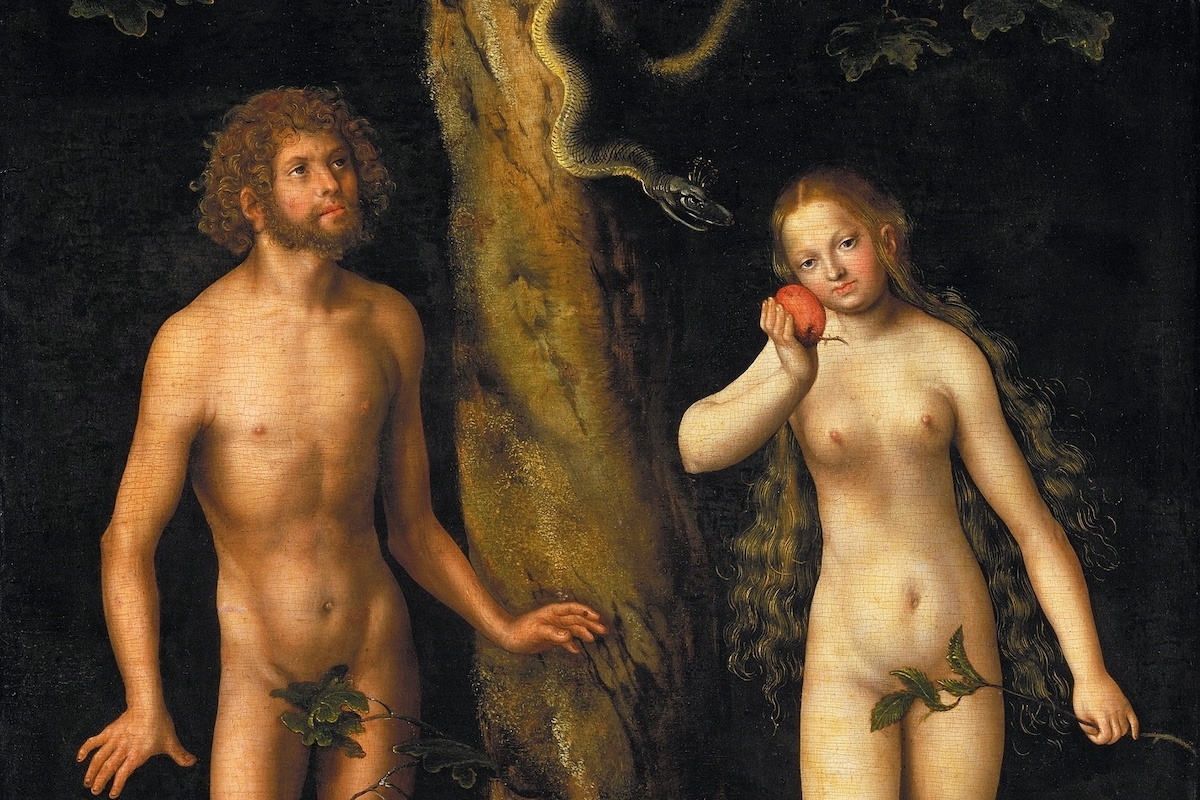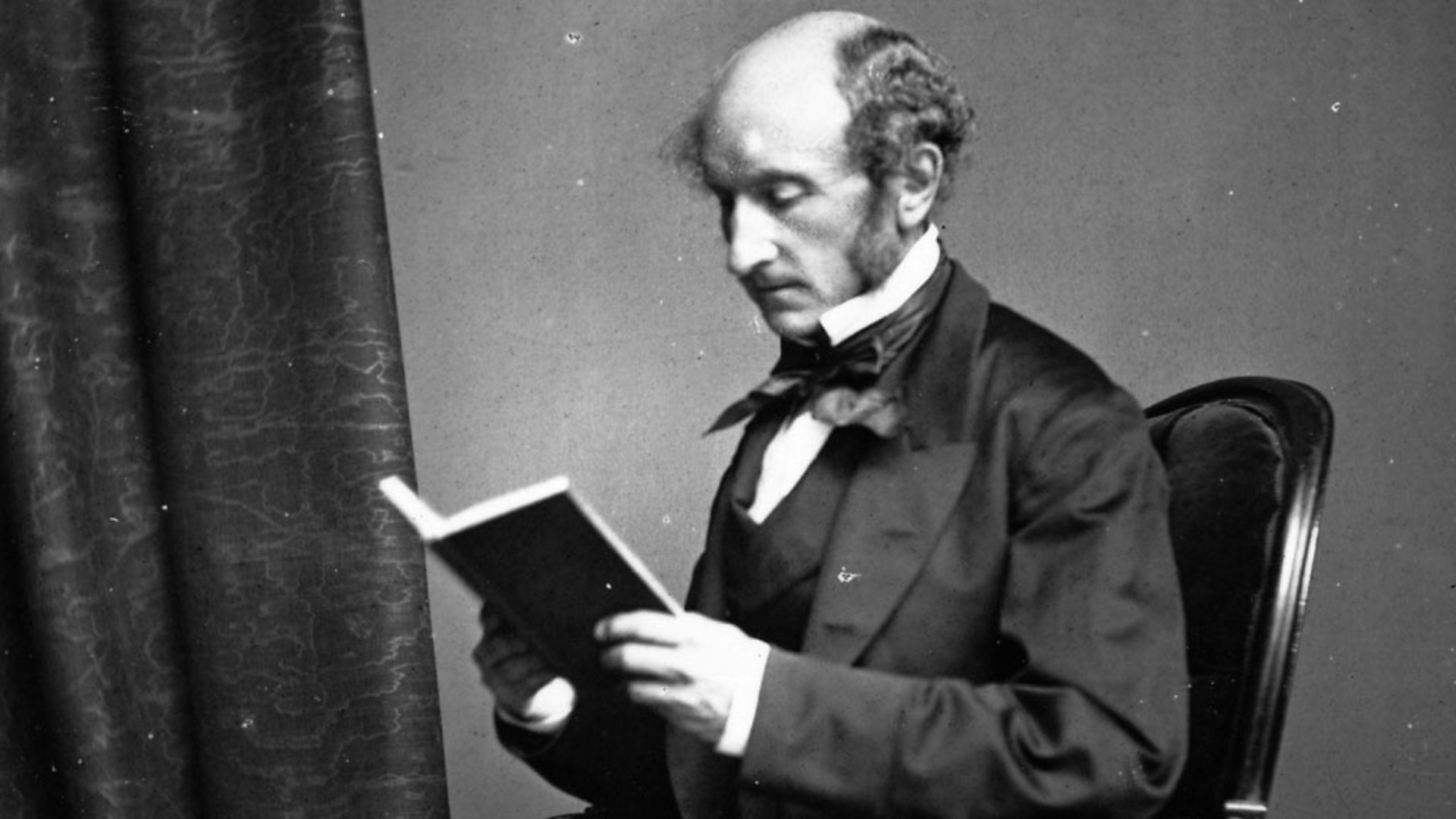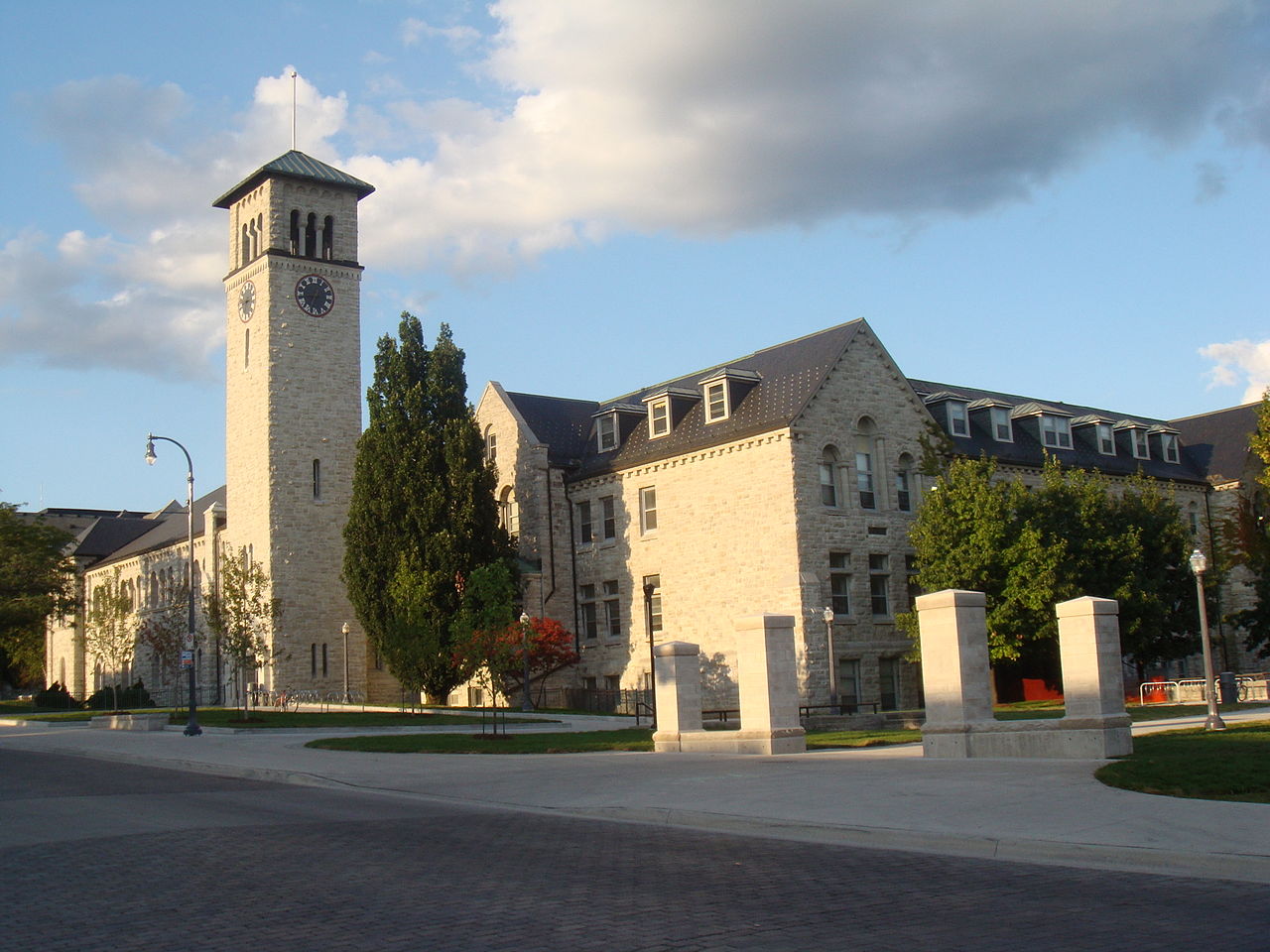recent
The Inner Nature of Freedom
The primarily political differences, therefore, emerge over how best to realize freedom, and of course, what freedom itself means.

All the while, that reign of desires savagely tyrannizes and batters a person’s whole life and mind with storm’s ranging in all directions. On this side fear, on that side desire, on this side anxiety, on that side empty spurious enjoyment, on this side torment over the loss of something loved, on the ardor to acquire something not yet possessed, on this side sorrows over injuries received, on that the burning desire to redress it. Whichever way one turns greed can pinch, extravagance squander, ambition enslave, pride puff up, envy twist, laziness overcome, stubbornness provoke, submissiveness oppress-these and countless others throng the realm of lust, having the run of it.
~St. Augustine, On the Free Choice of the Will
In an earlier article with Ben Burgis, we argued that it was a mistake to claim that the fundamental divide between the political Left and Right was between an emphasis on equality by the former and liberty by the latter. As we put it, almost “everyone values freedom” regardless of where they stand on the political spectrum. Or, at least, they profess to do so, although things often turn out quite differently in practice. The primarily political differences, therefore, emerge over how best to realize freedom, and of course, what freedom itself means. Does it simply mean the absence of coercion by state authorities, or should we develop a more substantive conception? Professor Burgis and I defended the latter position.
Here, I want to build upon some of these earlier themes by examining a somewhat different issue. That is: to what extent can an individual be uncoerced by the state, and yet remain unfree? This is, of course, a far more speculative question than the purely political one examined earlier, and I do not intend to answer it here. Instead, I want to show how major figures in philosophy and other disciplines have long acknowledged that freedom is not simply a matter of non-coercion, but has an important inner dimension. In the conclusion, I will briefly spell out the political consequences we might infer from taking such an inner conception of freedom seriously.
The Inner Nature of Freedom in Ancient Thought
While concern with state coercion has dominated much of modernist thinking, ancient authors were well aware of it. Even a cursory glance at works of the Ancient Greeks and Confucian or Daoist thinkers would highlight their deep concern with the problems of political tyranny. Confucius famously taught that a good ruler must not become a tyrant, but be someone who strives for benevolence and wisdom in the treatment of his subjects. A ruler who did not would bring disharmony to the realm. Many Ancient Greek authors went further still, with reformers in the vein of Cleisthenes establishing the world’s first democratic regimes. While later Greek thinkers like Plato and Aristotle were less positive in their appraisal of “rule by the many,” they remained hostile to any form of tyranny which would terrorize the people.
But all of these figures also recognized that true freedom is not simply about establishing the right political system. Political liberty was fundamentally linked to inner freedom, which was in some respects far more difficult to achieve. For the Buddha and arguably his latter day proponents like the philosopher Derek Parfit, one of the biggest barriers to achieving inner freedom is the persistent belief in the illusion of the “self.” Each of us believes that we have an inner self which is “what matters,” and devote our energies to slavishly pandering to its ever changing and inconsistent whims and desires. Once we see past this illusion and recognize that the self does not exist in any deep sense, we will be more capable of committing ourselves to what is truly important; whether achieving liberation from Samsara for Buddah or undertaking those actions which would ensure everything goes best for Parfit. The ancient Greeks took a very different position. For them, the self was indeed what matters, but its inner freedom was continuously barred by the dominance of our more animalistic inclinations. The more rational parts of the human being were enslaved by our focus on desire, or the veneration of doxa-public opinion. In Plato’s memorable allegory, we needed to free ourselves from seeing merely the illusory shadows on the wall cast by public opinion, and use reason to see the world and our real needs as they truly are. Freedom in this sense means training oneself to emphasize reason over animal impulse and the pursuit of crude desires.
Each of these positions is of course quite different from the other. For Buddhists, freedom means liberation from the illusion of the self and the very idea of desire. For Plato and many of the ancient Greeks, it meant discovering one’s truest self and pursuing higher forms of desire. But these different figures agreed that simply being at liberty to do as one wished was not real freedom. Without deeper changes, it could even encourage the most complete kind of self-enslavement. This was of course what happened in the case of Athenian democracy, where a failure to inculcate inner reflection led to hubris and the reduction of a proud people to a mindless mob tyrannizing others before finally suffering humiliation and defeat at the hands of Sparta.
Freedom and Religious Thinking
As indicated by the introductory quote, many of these ideas about inner freedom found their way into the thinking of various religious figures. This is true of the various Christian and Islamic scholastics, as well as Jewish thinkers like Maimonides. Many of these thinkers were keen to show how the true realization of freedom in human life was in some respect tied to obedience to the will of a just and benevolent God. On the surface of it this may well appear highly problematic, since freedom appears to rely upon obedience to the will of another. It also raises significant problems about how to understand the problem of evil. If evil constitutes a rejection of the true freedom offered by God, does this mean that those who sin are in some sense not really responsible for their actions? Are they simply giving in to a baser nature in the manner of animals? These difficult theological questions would occupy many of the best minds of the Medieval period.
Some insight might be drawn by looking at the Book of Genesis, which presents an archetypal story about the emergence of freedom in the world. God initially creates the world in six days, before resting on the seventh. He also creates the first man and woman, Adam and Eve, and places them in the paradise of Eden. There they are superficially “free” to do whatever they wish, so long as they do not eat the fruit from the tree of knowledge of good and evil. Eve is tempted by the serpent, which is craftier than the other animals, and she chooses to eat the fruit before sharing it with Adam. After this, God proclaims that human beings are now like him in “knowing good and evil” and so expels them from paradise.

In this story, holy to all the Abrahamic faiths, God determines that true freedom comes from knowledge of good and evil. Though Adam and Eve were in some senses “free” to do as they wished in Eden, excepting the prohibition on eating the forbidden fruit, this was a highly superficial liberty. They were not truly capable of doing anything wrong, since neither had any sense of what it would mean to act sinfully. After eating the fruit, humanity became capable of knowing what was truly good but also capable of doing what it knew to be wrong. In so doing, we polluted our liberty by misusing it. But this would ultimately lead only to a deeper kind of self-enslavement, as evil individuals could only reduce themselves by denying what was good and engaging in sinful acts of destruction towards others. True freedom, therefore, comes from knowing the good and willing it to be so, which would empower an individual by enabling them to become more like God. This desire to be morally akin to God is our deepest need, since it is for that which we were created. In some respect, quite paradoxically, because this is our deepest need, even our free acts of choosing the good have their ultimate roots in an all-knowing God. As Avincenna wrote:
The volitions that belong to us come to be after not having been, and whatever comes to be after not having been has a cause. Thus our volition has a cause and the cause of that volition will not be an infinite series of volitions, but things that happen externally, whether earthly or heavenly, with the earthly terminating in the heavenly.
Many of these arguments look analogously paradoxical to me. Scholastic thinkers found themselves in the difficult bind of needing to justify both an omniscient and all powerful god who knew everything in advance, but who also permitted a degree of free will and therefore spontaneity in the world. But their ongoing insight, acknowledged even by Nietzsche in his comments about Christianity deepening the Western soul, was that freedom is related to a kind of self-consciousness which generates a world of value. Put more simply, self-conscious beings have value systems which they try to live by. But this in turn always means the potential to fall short of such ideals. This can lead to intense feelings of doubt, anger, resentment, and so on; all the sentiments characteristic of sin. These ideas would later be picked up and secularized by modernist thinkers.
Inner Freedom in the Modern Age
The modern age, particularly with the advent of liberalism, is occasionally heralded for distancing itself from the moralism of the Greeks and religious thinkers. For many, following in the footsteps of Hobbes, Mill, and others, modernity stripped freedom of the senseless metaphysical gloss of earlier epochs and brought it down to earth. Freedom simply meant the liberty to do as one wished without coercion. This, of course, made freedom chiefly a political problem, rather than one with any bearing on the inner life. The conservative scholar Leo Strauss helpfully characterized this break by distinguishing between the liberties of the ancients, concerned with excellence, and the liberties of the moderns, which concerned permissiveness.
But the issue was never quite so simple. Starting with the Enlightenment, many modern authors came to recognize that the problem of inner freedom remained. In its classical period, Enlightenment authors often argued that true freedom could only be achieved once reason was emphasized over emotion, tradition, religious piety, and all other forms of irrationalism. Mature Enlightenment authors like J.S. Mill and Karl Marx were less crude in their dichotomization of reason and irrationality. But they too emphasized that we often remain beholden to the opinion of the public, or ideology, in a manner which we are unable to fully understand or explicate without a great deal of reflection and effort. In each of these cases, modern authors emphasized that freedom involves liberation from various forms of untruth or inauthenticity, which preclude us from recognizing our true interests and living more fulfilled and complete lives.

Perhaps the culminating figure in this tradition was Sigmund Freud, who followed Nietzsche and others in arguing that we are very much not in control of our own inclinations. Many of us are driven by unconscious drives over which we have little control and do not fully understand, even though they determine most of our actions and even the form of our personality. The point of psychotherapy then became to get us to recognize these unconscious drives and master them more effectively without excessive repression, fetishization, and other defenses. Though many of Freud’s more peculiar hypotheses have been rightly abandoned as unscientific speculation, his major point about being driven by psychological drives we do not fully understand and control seems quite plausible. Indeed, some elements of his thinking have become so widely accepted we no longer even recognize their roots in Freud’s theorizing.
The modernist arguments about inner freedom were as varied as any, and ranged from the highly implausible to the profoundly insightful. Modernity was never claimed by a pure movement towards unbridled liberty. Many figures recognized that inner freedom still mattered, and indeed, may perhaps matter more than ever before.
Conclusion
Do these ruminations about inner freedom have anything to teach us today? And do they have any bearing on political problems? The answer to both of these questions is an emphatic yes. Many of the social problems analyzed by these thinkers persist to this day. Some of them have become even more striking.
Take the Greek concern about the pervasiveness of public opinion as a limitation on freedom, shared by later thinkers like J.S. Mill and Søren Kierkegaard. Today we are more embedded in a culture of opinion generation than ever before. We are exposed to a huge array of new media, each of which propagates a given agenda and set of ideological presuppositions. While this offers tremendous opportunities for learning, it also poses a danger. As Neil Postman observed in his classic, Amusing Ourselves to Death, many of these new media simplify information by boiling it down to its most entertaining and superficial forms. The consequence of this is that a steady diet of such “infotainment” can seriously limit our capacity to critically analyze the world in a robust manner. This has consequences for our freedom, since an uncritical population is readily suspect to manipulation.
More deeply, we can think about the impact social media pose to our individuality. In some respects, they enable us to express our identities in a manner that is freer and more empowered than ever before. On the other hand, social media can impose intense pressures on individuals to present an image of themselves which conforms to public opinion. The desire to be liked, not to mention the economic pressure to develop one’s social capital, is now constantly activated through the ubiquity of our exposure to others in digital space. This may well pose a serious danger to our freedom as the pressure to be what others wish us to be becomes ever more intense.
In either case I think it is clear that, even in our relatively permissive age, we need to reflect deeply and carefully on the nature of inner freedom. Failing to do so, or dismissing it as an abstract problem, will not make it go away. Indeed we may well discover that not taking inner freedom seriously means we wind up dealing with serious political consequences. Because if it is true that only a free person can authentically find a kind of fulfillment in life, a society of unfree individuals is unlikely to be stable and content.






